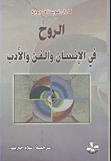What do you think?
Rate this book


191 pages, Paperback
First published January 1, 1941
Atrophy of feeling is characteristic of modern man and always shows itself as a reaction when there is too much feeling around, and in particular too much false feeling. From the lack of feeling in Ulysses we may infer a hideous sentimentality in the age that produced it. But are we really so sentimental today?And of course we are, and I suggest even more so. In our recent history we are inundated with over-the-top sentimentalized 'news events' while our world leaders heartlessly continue economic and military wars that kill millions. Collectively, individually and in our schools and media, we tacitly support this heartless killing through our ignorance and/or inaction, and at the same time put into power people like Trump in no small part because of the over sentimentalized sell of his 'making America great again.'